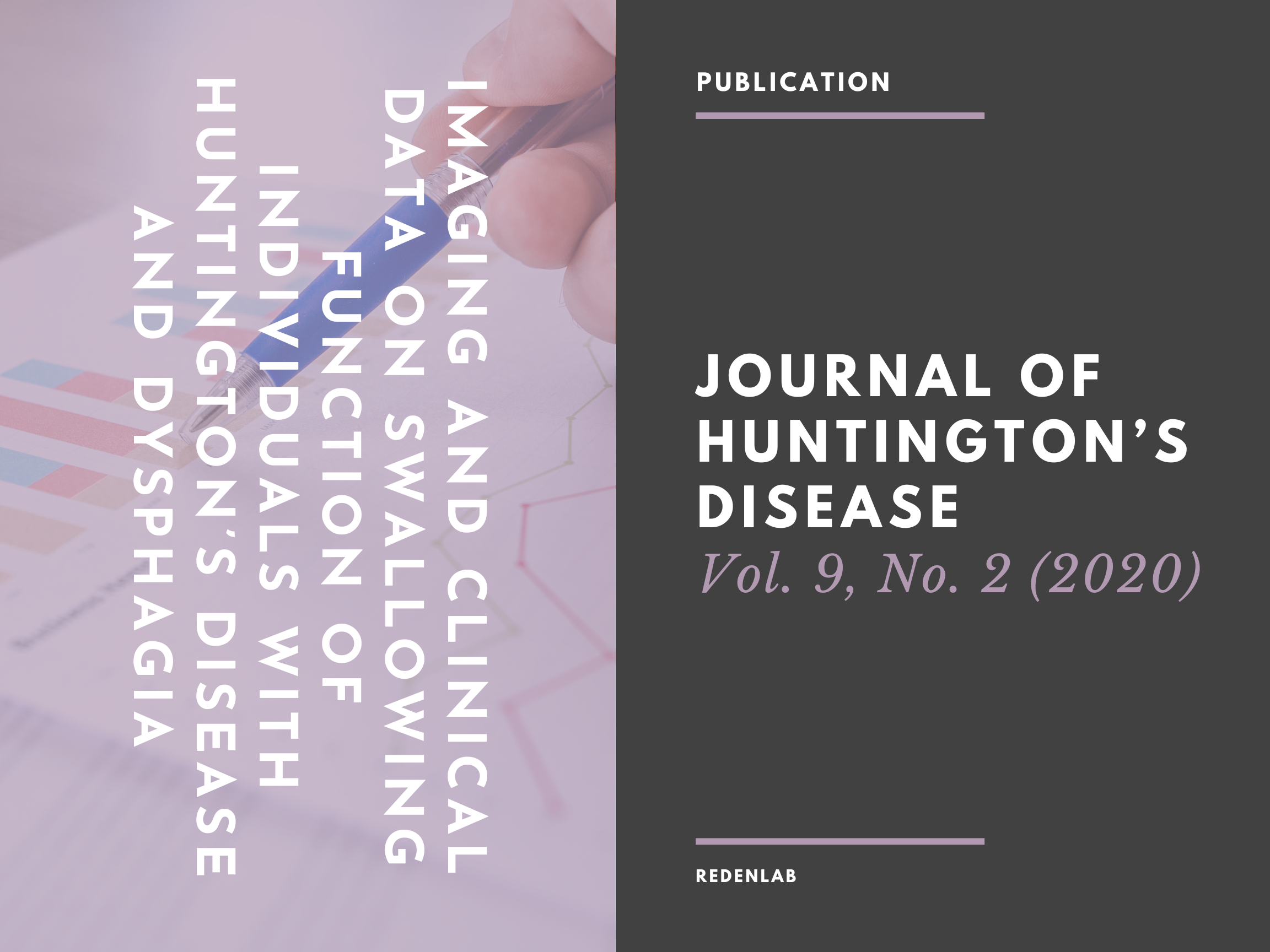Imaging and clinical data on swallowing function of individuals with Huntington’s disease and dysphagia

Dysphagia is common in Huntington’s disease (HD) affecting all phases of swallowing. Correlations exist between non-instrumental measures of dysphagia and clinical features of HD, including age, disease duration and degree of motor impairment. Lack of instrumental data limits our ability to wholly characterize HD-related dysphagia and prognosticate swallowing changes over time.
Objective: To retrospectively describe a relatively large database of videofluoroscopic studies (VFSSs) and determine the relationships between dysphagia and HD clinical parameters, including disease duration and burden of pathology score.
Methods: Medical and swallowing data of 49 individuals with HD and dysphagia were examined. VFSS data were interpreted using the Bethlehem Assessment Scale and Penetration-Aspiration Scale. Data from clinical bedside examination and social information were collated to describe the impact of dysphagia in HD. Repeated VFSS data were available for seven individuals.
Results: Swallowing was characterized by lingual dysfunction, reduced soft palate elevation, delayed pharyngeal swallow initiation, and inability to clear matter from the pharynx. Two-thirds of cases presented with compromised airway protection with both liquid and solid consistencies. Tachyphagia and difficulty self-feeding were common. Dysphagia correlated with disease severity and duration. Longitudinal analysis revealed a mixed pattern of progression with some individuals presenting with worsening dysphagia whilst others appeared to remain stable or improved in function.
Conclusions: Dysphagia in HD is exacerbated by difficulties with self-feeding and monitoring feeding rate. Burden of pathology relates to pharyngeal swallow initiation and penetration and aspiration of fluid. Dysphagia did not appear to worsen in a systematic way in a subset of participants.
Published in Journal of Huntington’s Disease, vol. 9, no. 2, pp. 163-171, 2020
Click here for more details
